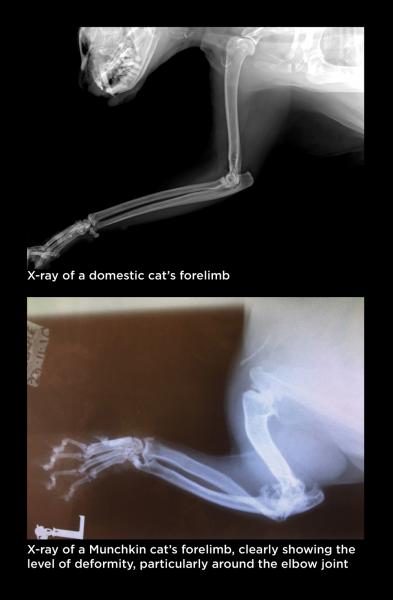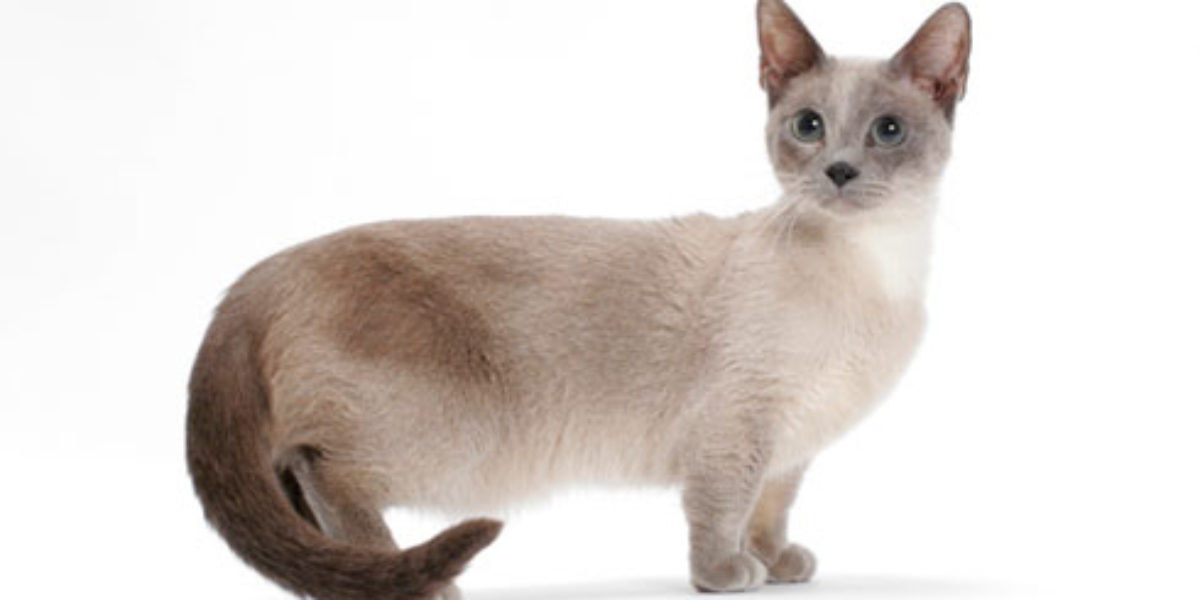Image supplied by Animal Photography
Seen as the feline equivalent of the Dachshund, this breed has caused controversy in the cat world with its short legs and long spine. Munchkins’ movements are described as being like that of a ferret. There are short coated and long coated versions.
Health and welfare of short-legged cats
Cats (Felis catus) are not a species with naturally short legs. Mutations that cause short legs may be detrimental in restricting aspects of the cat’s mobility and in some cases leg deformities may be painful and debilitating through the development of abnormal joints. Munchkins may not have the flexibility to groom themselves as well as other cats do, so will need some assistance. This is especially true for those with those sporting long hair.
The Gatehouse Veterinary Centre in Wrexham, UK, has first-hand experience of how difficult and painful life can be for Munchkin cats, having rescued two Munchkins in desperate need of a new home. The cats in question, Bonnie and Clyde, needed a home with no stairs or outdoor space, due to their lack of mobility and arthritis. Kelly Eyre, one of the veterinary centre’s nurses, who also has a background in cat welfare, recognised that they would be virtually impossible to rehome and provided them with a home at the veterinary centre.

One of the two munchkin cats at the veterinary centre
Kelly said of the cats: ‘They are both on long-term pain relief and have joint supplements. We have also just started them on supplements to improve their fur as Bonnie is struggling to maintain her coat condition now. They can have days where they appear grumpy and unsociable, and sometimes Clyde doesn’t get out of his bed until the afternoon. That’s when we know he’s not feeling too good. It must be exhausting to be in chronic pain. If they didn’t live with us at the practice, who knows what their lifestyle would be like elsewhere. Here we can monitor their pain, monitor their bloods where money isn’t an issue and have professionals keeping a close eye on them.’

Our position on breeding cats is that first no harm should be done. If there is even the smallest chance that having this ‘look’ causes problems, then we should not be accepting of it as a breed based on a genetic deformity.
Health and welfare issues – other
Progressive retinal atrophy (PRA) has been identified in the breed.
Important
We have limited the information about inherited disorders to those conditions that are known and proven to exist within a breed. For many breeders and many conditions, insufficient information may be available at this time to know whether any particular breed is necessarily free of any particular condition.
In general, pedigree breeds use a much smaller gene pool for breeding than domestic cats and therefore have a higher risk of developing inherited disorders. In addition, a number of ‘newer’ pedigree breeds are derived from matings between one or more ‘older’ breeds, and in these situations perpetuation of inherited problems that were seen in older breeds is likely within the newer breeds.
Thank you for visiting our website, we hope you have found our information useful.
All our advice is freely accessible to everyone, wherever you are in the world. However, as a charity, we need your support to enable us to keep delivering high quality and up to date information for everyone. Please consider making a contribution, big or small, to keep our content free, accurate and relevant.
Support International Cat Care from as little £3
Thank you.
Donate Now


